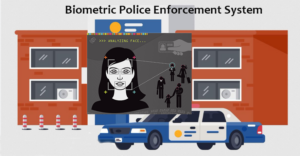Have you heard about the facial recognition trucks driving through the streets of Essex, England? The police in Essex are now using advanced biometric data to track citizens, thanks to Corsight AI biometric software. This software can be embedded within existing cameras to track down individuals based on their biometric data.
The ethical implications of such surveillance measures raise concerns about data privacy and governmental overreach. While individual organizations in the UK must obtain permission and be transparent about their data policies, the government does not face the same restrictions. The Data Protection Act of 2018 outlines how personal data can be collected, processed, and protected by law, but the law remains vague in the face of advancing technology.
Despite these concerns, the UK considers Corsight AI a success, citing clean-cut arrests made using the technology. From identifying known offenders to monitoring individuals at risk of harm, the program has been effective in aiding law enforcement efforts. However, questions remain about who has access to this wealth of data and how it is being used.
The use of facial recognition technology is not limited to the UK. Other nations are also adopting similar measures, such as Israel using the program in hospitals to identify deceased victims and Paris using it to monitor crowds at the Olympic games. As we move towards 2032, governments around the world may increasingly rely on such surveillance measures to track their citizens’ movements.
At Extreme Investor Network, we believe in providing valuable insights on emerging technologies and their impacts on society. Stay informed about the latest developments in economics and technology by following our blog.

